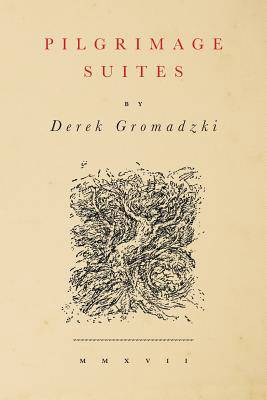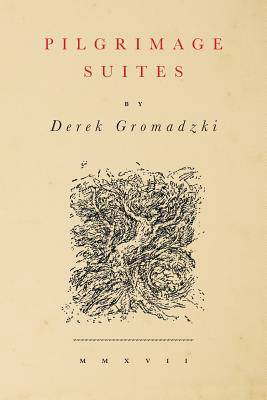
- Retrait gratuit dans votre magasin Club
- 7.000.000 titres dans notre catalogue
- Payer en toute sécurité
- Toujours un magasin près de chez vous
- Retrait gratuit dans votre magasin Club
- 7.000.000 titres dans notre catalogue
- Payer en toute sécurité
- Toujours un magasin près de chez vous
Description
Free Verse Editions
Series Editor: Jon Thompson
Reading itself is travel in Derek Gromadzki's first book, Pilgrimage Suites, an outing across an insular medieval landscape as rich in its registers of language as in its flora or fauna. This book is neither history nor story, though it retains characteristics of each. Like history, it perpetuates retrograde speculation while maintaining the narrated sequencing of incident that is the common stock and trade of story. In the heyday of medieval pilgrimages, English underwent radical changes. The Latinate speech of Church officialdom ran roughly up against a vernacular with deep Germanic and Brythonic roots. These suites track an imagined journey over the landscape that staged the violence of this conflict, whereon strikingly beautiful monuments stood in the aftermath. To the cultural clashes and assimilations materially manifest in the Romanesque and Gothic cathedrals travelers still venerate today, Gromadzki offers an overlooked parallel through creative strife with sound. He uses the momentum generated in running the lexical and rhythmic possibilities of English's varied sources together to stretch and sustain the lyric over a pastoral background to push each of these two modes past its respective limits.
A severely crafted tapestry invites us to "lie down on the wings of swifts wheeling" over the rich and varied vocabulary of English. An airier form of pilgrimage than the traditional "walking waking," but all the same a pilgrimage: through language--and to language, which endures through its very changes whereas, as the epigraph tells us, "Him as was has gone from we." Derek Gromadzki travels its distance.
--Rosemarie Waldrop
At first, Derek Gromadzki's Pilgrimage Suites strikes the reader as the continuation of some line running parallel to the line from which most contemporary American poetry branches. Although occasionally Pilgrimage Suites references that line--Susan Howe, Nathaniel Mackey, and, more quietly, Hart Crane, haunt this book--gradually, the reader discovers that it is not the continuation of any pre-existing line, but the beginning of its own. This poetry cannot be found anywhere else--as is the case with any successful new poetry, it could not have been imagined before it came to be, and its absence cannot be imagined now.
--Shane McCrae
What happens gradually is a dialect never spoken of a language never finished, which this poet adds to, tough "thews of melody" pressed to relay experience half in and half out of chronicle, in exacting objectivist care with syllable and swerve. This book of glad orderings energizes archaic tongues to lyric brilliance. What a mirror for poets today!
--Mark McMorris
About the Author
Derek Gromadzki is the recipient of an MFA in poetry from the Literary Arts Program at Brown University and an MFA in literary translation from the Translation Workshop at the University of Iowa, where he is currently a PhD candidate in comparative literature. His latest translations, collaborations with Sayuri Okamoto, can be found in Alice, Iris, Red Horse: Selected Poems of Yoshimasu Gozo (New Directions, 2016).
Spécifications
Parties prenantes
- Auteur(s) :
- Editeur:
Contenu
- Nombre de pages :
- 76
- Langue:
- Anglais
- Collection :
Caractéristiques
- EAN:
- 9781602358645
- Date de parution :
- 29-12-16
- Format:
- Livre broché
- Format numérique:
- Trade paperback (VS)
- Dimensions :
- 152 mm x 229 mm
- Poids :
- 122 g







